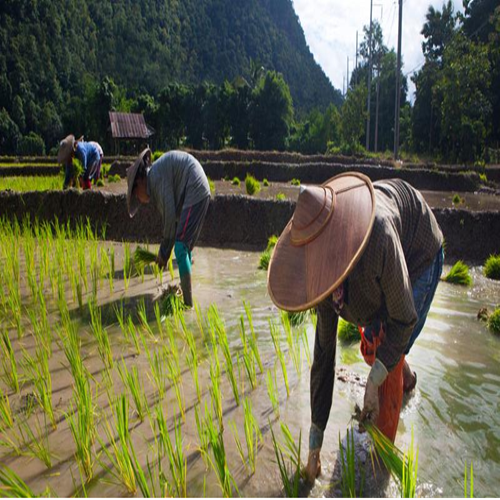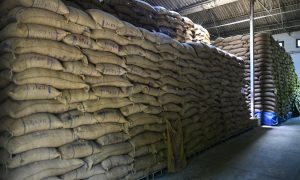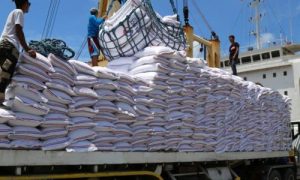20% Boro paddy under threat from heatwave

Agricultural scientists warn of heatwave’s detrimental effects on rice paddy, impacting flowering, pollination, and grain formation. Boro paddy cultivation spans 50.58 lakh hectares with a 2.22 crore tonne production target. Heat stress affects mango and litchi production, particularly non-commercial orchards. Proper irrigation management crucial to mitigate heat impact. Mango buds forming less due to late winter. Rice flowers best pollinate in temperatures below 35 degrees Celsius, but morning temperatures often exceed this, hampering pollination.
Agricultural scientists have noted that rice paddy is sensitive to temperatures above 35 degrees Celsius, which can cause heat shock or injury. However, temperatures across most of the country have been surpassing this limit for the past week.
With the Meteorological Office forecasting the heatwave to persist for at least another week, farmers and agriculture offices fear extensive crop loss this Boro season.
Md Sazzadur Rahman, Principal Scientific Officer (Plant Physiology Division) at the Bangladesh Rice Research Institute, said that when paddy plants flower, they are vulnerable to heat, which can interrupt their normal growth and later affect the formation of rice grains.
Besides, rice plants produce food during the day and convert it into rice grains at night. However, when nighttime temperatures are high, the nutrition (grain filling) of grains is affected even though they are formed, potentially reducing overall production.
According to DAE data, Boro paddy has been cultivated across 50.58 lakh hectares of land in the current fiscal year, with a production target of 2.22 crore tonnes.
Currently, about 40% of the harvest has been completed in haor areas. However, the overall Boro harvest rate is only 6.5%.
In April 2021, temperatures soared past 39 degrees during a heatwave, causing Boro rice flowers to dry up and leading to yield losses.
What can farmers do to save crops
During the flowering and pollination of rice, the plant releases a lot of water through respiration to protect the seeds from the damage caused by hot air. This process acts like the plant’s cooling system, scientists said.
To protect rice from damage due to heat shock during hot weather, it’s important to retain enough water in the soil. Keeping two to three inches of water on the ground until the rice grains become hard is essential.
Besides, using some chemical fertilisers moderately can help protect rice plants from this condition.
They also recommended using different chemicals moderately to prevent the attack of leaf blast disease during this time.
Heat impact on mango, litchi
The Department of Agriculture Extension (DAE) is concerned that mango production might be lower than last year, with the ongoing heatwave potentially worsening the situation.
Agriculture officials note that 40% of mango production comes from commercial orchards, while the rest is from non-commercial sources.
Commercial orchards are well-maintained with regular irrigation, which helps minimise the impact of heat on production. However, there might still be a slight drop in production due to the heat.
In contrast, trees outside commercial orchards lack this management, making them vulnerable to mango falling during storms.
Meanwhile, the most damage is expected in the case of litchi. Litchi plants are currently in the early stages of flowering and bud formation.
Many parts of the northern region are experiencing litchi bud drop due to the heatwave. Improper management could lead to insect attacks and bud bursting.
KJM Abdul Awal, acting director of the Horticulture Wing of the DAE, said proper irrigation management during heatwaves is typically lacking in family or community orchards compared to commercial ones.
He highlighted that due to the late winter this year, mango buds have already formed less in family orchards.
He explained that rice flowers pollinate best between 9am and 11am when temperatures are below 35 degrees. However, morning temperatures in the country often exceed this, drying up the blossoms and making pollination difficult.
Source Link: https://www.tbsnews.net/bangladesh/20-boro-paddy-under-threat-heatwave-837176















